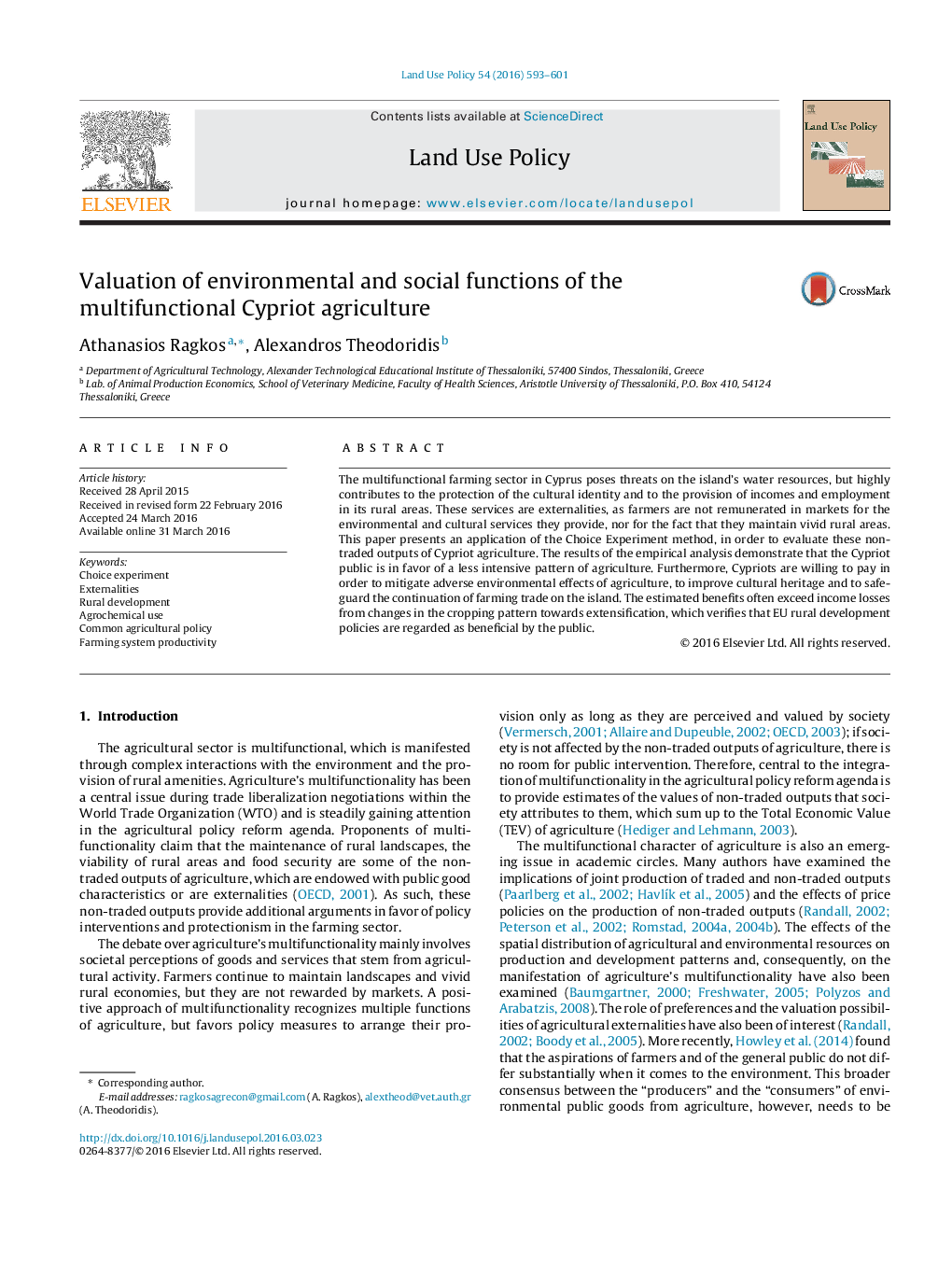| Article ID | Journal | Published Year | Pages | File Type |
|---|---|---|---|---|
| 6547412 | Land Use Policy | 2016 | 9 Pages |
Abstract
The multifunctional farming sector in Cyprus poses threats on the island's water resources, but highly contributes to the protection of the cultural identity and to the provision of incomes and employment in its rural areas. These services are externalities, as farmers are not remunerated in markets for the environmental and cultural services they provide, nor for the fact that they maintain vivid rural areas. This paper presents an application of the Choice Experiment method, in order to evaluate these non-traded outputs of Cypriot agriculture. The results of the empirical analysis demonstrate that the Cypriot public is in favor of a less intensive pattern of agriculture. Furthermore, Cypriots are willing to pay in order to mitigate adverse environmental effects of agriculture, to improve cultural heritage and to safeguard the continuation of farming trade on the island. The estimated benefits often exceed income losses from changes in the cropping pattern towards extensification, which verifies that EU rural development policies are regarded as beneficial by the public.
Related Topics
Life Sciences
Agricultural and Biological Sciences
Forestry
Authors
Athanasios Ragkos, Alexandros Theodoridis,
